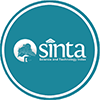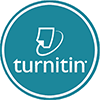Peningkatan Pemahaman Partikel Penyusun Benda Melalui Animasi 3 Dimensi
Abstract
Keywords
Full Text:
PDFReferences
Abdinejad, M., Talaie, B., Qorbani, H. S., & Dalili, S. (2021). Student Perceptions Using Augmented Reality and 3D Visualization Technologies in Chemistry Education. Journal of Science Education and Technology, 30(1), 87–96. https://doi.org/10.1007/s10956-020-09880-2
Aburayash, H. M. (2019). Cognitive Load And Its Relationship With Mental Capacity In Accordance With Their Levels At Students Of The Secondary Stage In Terms Of Sweller Theory. Journal of Education and Learning (EduLearn), 13(3), 349–356. https://doi.org/10.11591/edulearn.v13i3.13244
Cakiroglu, U., & Yilmaz, H. (2017). Using Videos and 3D Animations for Conceptual Learning in Basic Computer Units. Contemporary Educational Technology (Vol. 8, Issue 4).
Creswell, J. W., & Creswell, D. J. (2018). Research Design: Qualitative, Quantitative, and Mixed Methods Approaches.
de Jager, T. (2017). Perceived Advantages Of 3D Lessons In Constructive Learning For South African Student Teachers Encountering Learning Barriers. International Journal of Inclusive Education, 21(1), 90–102. https://doi.org/10.1080/13603116.2016.1184329
Farihah, F., Sitompul, H., Ampera, D., Tanjung, S., & Jahidin, I. (2022). Development of 3D-based Learning Modules for University Students. International Journal of Education in Mathematics, Science and Technology, 11(1), 56–73. https://doi.org/10.46328/ijemst.2715
Febrita, Y., & Ulfah, M. (2019). Peranan Media Pembelajaran Untuk Meningkatkan Motivasi Belajar Siswa. Prosiding DPNPM, 181–188.
Hartariani, L. L., Damatanthi, L. P. E., Wirawan, I. M. A., & Sunarya, I. M. G. (2016). Pengembangan Media Pembelajaran 3 Dimensi Pada Mata Pelajaran Matematika Untuk Siswa Penyandang Tunagrahita. Jurnal Pendidikan Teknologi Dan Kehuruan, 13(2), 137–147.
Herrington, D. G., Hilborn, S. M., Sielaff, E. N., & Sweeder, R. D. (2022). ChemSims: Using Simulations And Screencasts To Help Students Develop Particle-Level Understanding Of Equilibrium In An Online Environment Before And During COVID. Chemistry Education Research and Practice, 23(3), 644–661. https://doi.org/10.1039/D2RP00063F
Hiranyachattada, T., & Kusirirat, K. (2020). Using Mobile Augmented Reality to Enhancing Students’ Conceptual Understanding of Physically-based rendering in 3D Animation. European Journal of Science and Mathematics Education (Vol. 8, Issue 1).
Javora, O., Hannemann, T., Volná, K., Děchtěrenko, F., Tetourová, T., Stárková, T., & Brom, C. (2021). Is Contextual Animation Needed In Multimedia Learning Games For Children? An Eye Tracker Study. Journal of Computer Assisted Learning, 37(2), 305–318. https://doi.org/10.1111/jcal.12489
Jiang, J., & Fryer, L. K. (2024). The Effect Of Virtual Reality Learning On Students’ Motivation: A Scoping Review. Journal of Computer Assisted Learning, 40(1), 360–373. https://doi.org/10.1111/jcal.12885
Jones, S. R., Long, N. E., & Becnel, J. J. (2023). Design Of Virtual Reality Modules For Multivariable Calculus And An Examination Of Student Noticing Within Them. Research in Mathematics Education, 25(2), 219–242. https://doi.org/10.1080/14794802.2022.2045625
Karaçam, S., & Bilir, V. (2021). Evaluation of Mental Models of Prospective Science Teachers on Chemical Reactions. Journal of Pedagogical Research, 5(1), 258–274. https://doi.org/10.33902/JPR.2021167800
Kustandi, C., Farhan, M., Zianadezdha, A., Fitri, A. K., & L, N. A. (2021). Pemanfaatan Media Visual Dalam Tercapainya Tujuan Pembelajaran. Akademika, 10(02), 291–299. https://doi.org/10.34005/akademika.v10i02.1402
Lestari, D. P., Supahar, Paidi, Suwarjo, & Herianto. (2023). Effect Of Science Virtual Laboratory Combination With Demonstration Methods On Lower-Secondary School Students’ Scientific Literacy Ability In A Science Course. Education and Information Technologies, 28(12), 16153–16175. https://doi.org/10.1007/s10639-023-11857-8
Prahani, B. K., Rizki, I. A., Nisa’, K., Citra, N. F., Alhusni, H. Z., & Wibowo, F. C. (2022). Implementation Of Online Problem-Based Learning Assisted By Digital Book With 3D Animations To Improve Student’s Physics Problem-Solving Skills In Magnetic Field Subject. Journal of Technology and Science Education, 12(2), 379. https://doi.org/10.3926/jotse.1590
Rahmawati, I., Febrianti, A., Wibowo, A., Sugiri, W., & Kurniawan, P. (2023). Profile Of Student’s And Teacher’s Ability To Utilize Digital Device In The Learning Of IPAS At SDN Bunulrejo 1 Malang. Proceeding Of International Conference On Islamic Education (ICIED), 8(1), 1-7. Retrieved from http://conferences.uin-malang.ac.id/index.php/icied/article/view/2492
Rehrig, G., Cullimore, R. A., Henderson, J. M., & Ferreira, F. (2021). When More is More: Redundant Modifiers Can Facilitate Visual search. Cognitive Research: Principles and Implications, 6(1), 10. https://doi.org/10.1186/s41235-021-00275-4
Sugiri, W. A., Wibowo, A. M., Priatmoko, S., & Amelia, R. (2023). Profile of Elementary School Islamic Education Teachers in Utilizing Digital Platforms for Learning in the Era of Society 5.0. Jurnal Pendidikan Agama Islam, 10(1), 23–32. https://doi.org/10.18860/jpai.v10i1.24766
Teplá, M., Teplý, P., & Šmejkal, P. (2022). Influence Of 3D Models And Animations On Students In Natural Subjects. International Journal of STEM Education, 9(1), 65. https://doi.org/10.1186/s40594-022-00382-8
Wandini, R. R., Bariyah, C., Lubis, H. A., Nur, N. M., & Mardhatillah, S. (2022). Metode Eksperimen pada Proses Pembelajaran Perubahan Wujud Benda pada Sekolah Dasar. Jurnal Pendidikan Dan Konseling, 4(3).
Wibowo, A. M. (2022). Changing the Concept of Prospective Primary Education Teachers through Ethnoscience-based Critical Thinking. Al Ibtida: Jurnal Pendidikan Guru MI, 9(2), 382. https://doi.org/10.24235/al.ibtida.snj.v9i2.10273
Wibowo, A. M., & Amelia, R. (2021). Pembelajaran Sains Integratif Dalam Meningkatkan Pemahaman Materi Nutrisi dan Gizi. Journal of Education, 4(1). https://doi.org/10.32478/al-mudarris.v4i1.665
DOI: https://doi.org/10.18860/experiment.v4i1.26021
Refbacks
- There are currently no refbacks.
Copyright (c) 2024 Experiment: Journal of Science Education

This work is licensed under a Creative Commons Attribution-NonCommercial 4.0 International License.
INDEXED & SUPPORTED BY:
EDITORIAL OFFICE
Fakultas Ilmu Tarbiyah dan Keguruan
Universitas Islam Negeri Maulana Malik Ibrahim Malang
Jalan Gajayana 50 Malang 65144, Jawa Timur, Indonesia
Telp/Fax: +62341-552398
Email: experiment@uin-malang.ac.id / Website: http://ejournal.uin-malang.ac.id/index.php/experiment











